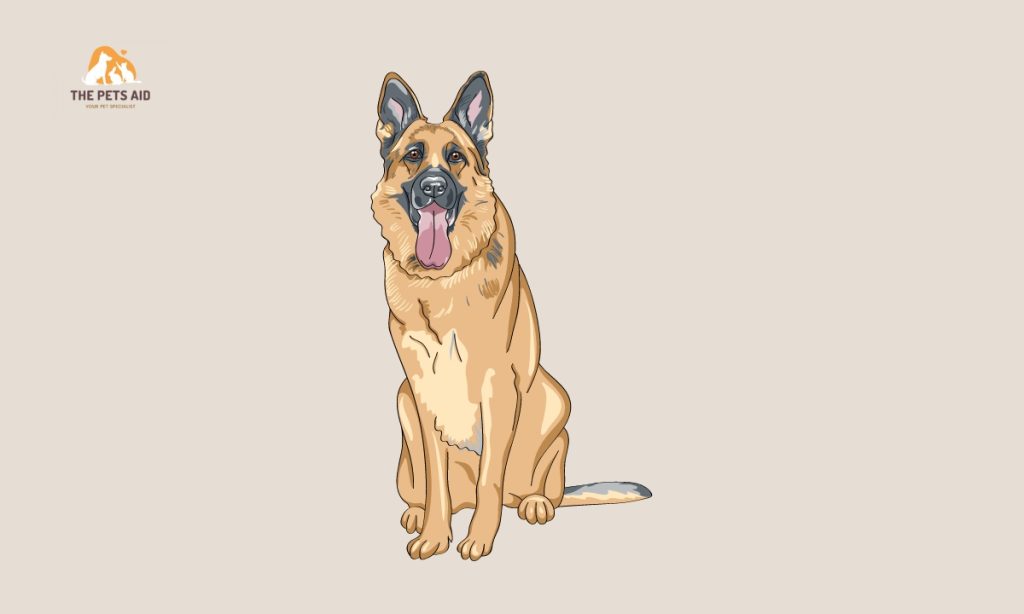
Reasons Not to Own a German Shepherd: Owning a German Shepherd can be a rewarding experience filled with loyalty, intelligence, and companionship. These magnificent dogs have become one of the most beloved breeds worldwide.
Is German Shepherd good or bad? German Shepherds are generally good dogs, known for their intelligence, trainability, and compatibility with children and other pets, but they can be cautious around strangers, and their behavior can vary depending on breeding and socialization.
Are German Shepherds safe to own?
Yes, German Shepherds can be safe to own as long as they are properly socialized, trained, and their protective nature is managed appropriately.
Does German Shepherd love his owner?
Yes, German Shepherds have a deep and genuine love for their owners. Their devotion and desire to be close to their humans showcase the strong bond they share, making them known for their unparalleled love and loyalty in the canine world.
| In Addition – Why You Shouldn’t Get an Australian Shepherd? |
19 reasons not to own a German shepherd – Why German Shepherds are not for everyone?
However, it’s essential to recognize that German Shepherds might not fit everyone perfectly. Owning a German Shepherd may not be suitable if you can’t commit to their exercise needs, grooming, and training demands.
Here, we’ll delve into 19 compelling reasons why owning a German Shepherd might not align with your lifestyle, needs, or preferences.
Whether you’re an aspiring dog owner or already a proud pup parent, understanding these considerations will help you make an informed decision about welcoming a German Shepherd into your home.
Let’s embark on this journey to explore the intricacies of life with these remarkable canines.
1. Exercise Requirements
German Shepherds are known for their boundless energy. They thrive when engaged in regular physical activities such as long walks, runs, or hikes. Neglecting their exercise needs can lead to behavioral issues like restlessness, hyperactivity, or destructive tendencies.
2. Space
These dogs are not suited for small living spaces. Due to their size and activity level, German Shepherds require ample room to move around comfortably. With sufficient space, they may feel free and comfortable.
3. Time Commitment
Owning a German Shepherd is a substantial time commitment. They need daily interaction, exercise, and mental stimulation. If your schedule leaves little time for your furry companion, this breed may not be a practical choice.
4. Training Needs
German Shepherds are highly intelligent but can also be strong-willed. Consistent training and mental challenges are essential to keep them well-behaved. If you lack the time or patience for training, this breed may become unruly and difficult to manage.
5. Socialization
Proper socialization is crucial for German Shepherds to prevent behavioral issues like fearfulness or aggression toward strangers or other animals. Failing to expose them to various people, places, and situations can result in problems down the road.
6. Shedding
German Shepherds are moderate to heavy shedders year-round. Their double coat requires regular grooming to minimize shedding and prevent matting. If you’re not prepared for the extra cleaning and maintenance, this breed may not be your best choice.
7. Size
These dogs can grow large and powerful, making them challenging to handle for some individuals, especially those with physical limitations. Consider your ability to manage a big, strong dog before bringing a German Shepherd into your home.
8. Separation Anxiety
German Shepherds often form strong bonds with their owners and can suffer from separation anxiety when left alone for extended periods. This may lead to destructive behaviors and excessive barking.
9. Protective Instincts
While their protective nature can be an asset, it can also become a liability if not adequately managed. German Shepherds may become overly protective or aggressive if not properly trained and socialized.
10. Health Concerns
German Shepherds are prone to certain health issues like many breeds, including hip dysplasia, bloat, and skin problems. Be prepared for potential veterinary expenses and ongoing medical care.
11. Noise
German Shepherds can be vocal dogs, barking to alert you to perceived threats or disturbances. This constant barking may be problematic if you live in a noise-sensitive environment or have close neighbors.
12. Not Apartment Dogs
Due to their exercise needs and size, German Shepherds are generally not well-suited for apartment living. They require a yard or access to open spaces to thrive.
13. Financial Commitment
Owning a German Shepherd can be financially demanding. Expenses include high-quality food, grooming, training, and potential medical bills. Ensure your budget can accommodate these costs.
14. Potential Aggression
If not properly trained and socialized from a young age, German Shepherds can exhibit aggression towards other dogs or people. This can lead to dangerous situations if not managed correctly.
15. Not Suitable for Novice Owners
This breed requires experienced owners who understand their specific needs and behaviors. Novice dog owners may struggle to handle the complexities of raising a German Shepherd.
16. Allergies
If you or a family member has allergies, be aware that German Shepherds shed and produce dander. This can exacerbate allergies and pose health issues.
17. Chasing Instinct
German Shepherds have a strong prey drive and may chase after smaller animals, bicycles, or cars. This behavior can be difficult to control and potentially dangerous.
18. Time-Consuming Grooming
Regular grooming is essential to manage shedding and keep their coat healthy. Brushing and maintenance can be time-consuming, so be prepared for this aspect of caring for a German Shepherd.
19. Lifespan
German Shepherds have a relatively short lifespan compared to smaller breeds. This means you’ll likely experience their aging and potential health issues sooner, requiring ongoing care and attention.
Video – 6 Reasons You SHOULD NOT Get A Male German Shepherd
FAQ – People Also Ask
Now, let’s address some common questions that arise about owning a German Shepherd:
Is German Shepherd loyal?
Yes, German Shepherds are renowned for their unwavering loyalty and deep bonds with their families.
Are German Shepherds serious dogs?
Yes, German Shepherds are known for their seriousness, intelligence, and vigilance, qualities that make them excellent police K-9 units.
Are German Shepherds difficult?
Yes, like all dog breeds, German Shepherds require proper training and handling, especially when they are puppies.
What makes German Shepherds happy?
German Shepherds are happiest when they are the center of their family’s attention and receive affection. They thrive on being part of the family.
What type of person owns a German Shepherd?
People who choose German Shepherds are often described as strong, dependable, and tenacious individuals who know how to get the job done.
Which German Shepherd is best?
The West-German Working Line is widely considered the most popular type of German Shepherd, known for its calm temperament and easy maintenance.
Is German Shepherd easy to train?
Yes, German Shepherds are generally easy to train due to their high intelligence and obedience, making them quick learners.
Is German Shepherd a guard dog?
Yes, German Shepherds are excellent guard dogs due to their protective instincts, courage, loyalty, and quick response to threats.
Who should not own a German Shepherd?
Those who cannot provide both mental and physical stimulation, walk, play, and be active members of their GSD’s life should not own a German Shepherd.
How painful is a German Shepherd bite?
German Shepherd bites can be quite strong, around 238 psi or more, making them more powerful than a Pit Bull and similar to larger breeds like wolfdogs.
Conclusion
In conclusion, German Shepherds are remarkable dogs but require a dedicated and experienced owner who can meet their specific needs. If you’re considering this breed, thoroughly research and assess whether you can properly provide the time, space, and commitment required to care for a German Shepherd.
| In Addition – How Long Are German Shepherds Pregnant? |

